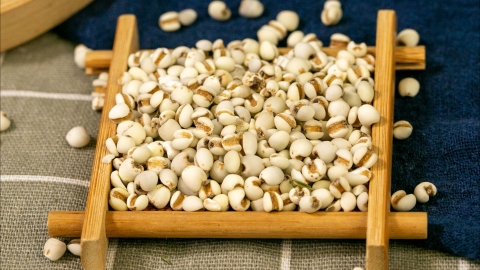What is incompatible with Coix seed (Yi Mi)?
Generally, coix seed may be incompatible with honey, milk, kelp, almonds, soybeans, and other substances. The specific analysis is as follows:

1. Honey
Consuming coix seed with honey may cause diarrhea. Honey has a function of lubricating the intestines and promoting bowel movements. When consumed together with coix seed, it may accelerate intestinal motility, leading to diarrhea and other gastrointestinal discomforts.
2. Milk
Consuming coix seed with milk may affect the absorption of proteins. The proteins in milk may combine with certain components in coix seed to form indigestible complexes, reducing the absorption rate of proteins and affecting the full utilization of nutrients.
3. Kelp
Consuming coix seed with kelp may affect the absorption of iodine. Kelp is rich in iodine, while certain components in coix seed might interfere with the absorption and utilization of iodine. Long-term consumption in this manner may lead to thyroid dysfunction.
4. Almonds
Consuming coix seed with almonds may cause indigestion. Amygdalin in almonds can be decomposed into hydrogen cyanide in the human body. Consuming it together with coix seed may increase the burden on the gastrointestinal tract, leading to symptoms such as indigestion and abdominal distension.
5. Soybeans
Soybeans contain a component called trypsin, while coix seed contains a large amount of protein. When consumed together, the trypsin in soybeans may inhibit the absorption of protein in coix seed, thereby reducing the nutritional value of coix seed.
However, these foods are not necessarily strictly incompatible with coix seed, and individual reactions after consumption may vary. It is recommended that individuals pay attention to their own responses in daily life. If discomfort occurs after consumption, the intake should be reduced or the combination avoided.





